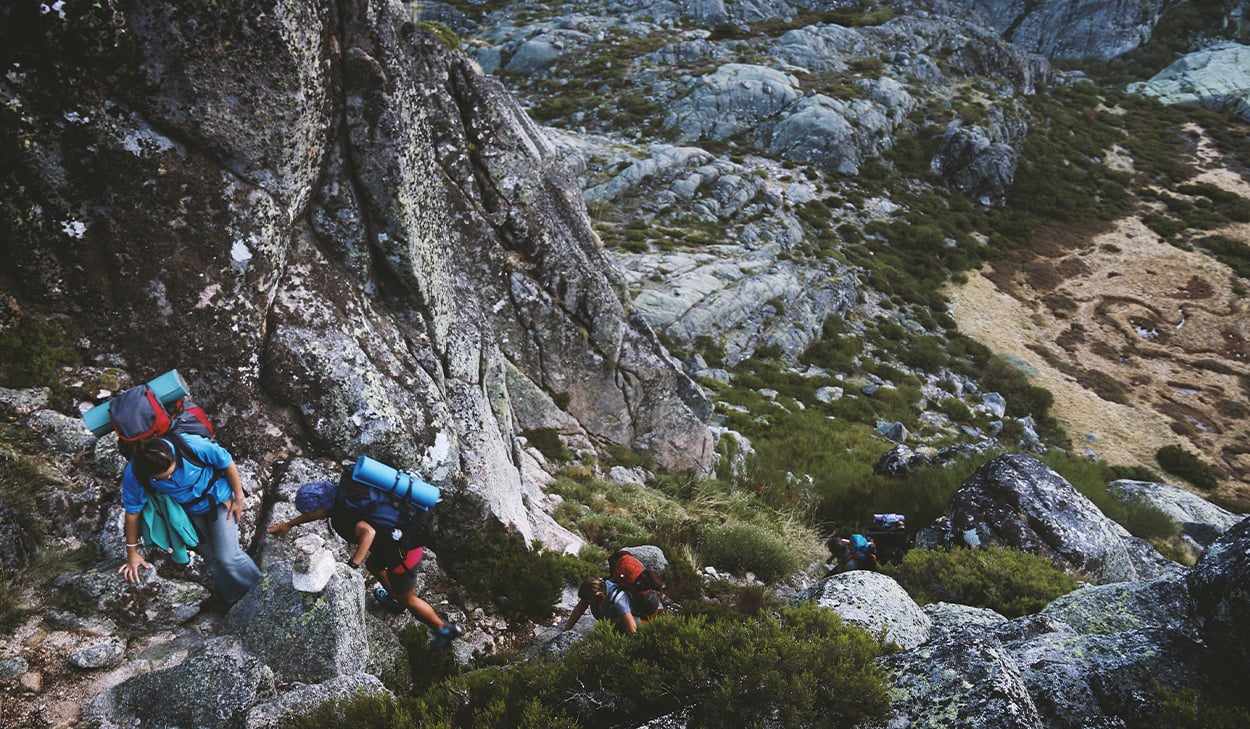
Rebecca* stood on the side of a mountain in South Asia waiting to get a signal on her satellite phone. She could hear her short-term mission team singing worship songs by a campfire not far off. The group had just arrived in the country ready to trek mountains to share the gospel with unreached people groups, but the trip was already off to a difficult start.
It was early 2020, and the COVID-19 pandemic had just hit the U.S.
Universities were canceling classes, and many of the participants on Rebecca’s team were college students. Countries were implementing travel bans. The father of the team’s leading national partner had died that morning. One of the translators had fallen extremely ill. The team’s visas had been suspended, and the government asked the group to leave the country.
All of this happened before breakfast.
Rebecca, the team's trip leader, was waiting for a call from her director to tell her what to do. When his voice came through the satellite phone, he said, “It’s your call.”
Rebecca pulled her co-leader and husband to the side to tell them the decision was left to them. They could stay in the country to finish the mission, potentially risking the health and safety of the team. Or they could call it quits, pack up, and head home. The three discussed their options and came to a conclusion: they would stay.
Rebecca’s team was the last East-West short-term team to deploy before lockdown restrictions went into full swing in the U.S.
The next day
The challenges continued as Rebecca’s team pressed on. They had to hike rough mountain terrain to reach the tribes that were mostly closed off to the world.
The team arrived at their first village of people who had never heard the name of Jesus. At each hut they visited, families responded with awe and curiosity about this Savior who died for their sins. But no one was ready to accept the gift of salvation without input from the patriarch of the tribe. Rebecca calls him Grandpa, and he was waiting at the top of the mountain.
So, the team reached the summit and met Grandpa. When they shared the gospel with him, Grandpa responded, “Who is this Jesus?” The patriarch recognized the weight of the decision to accept Jesus’ sacrifice for himself and the rest of his tribe. He told the team members that he would have to think about it.
Rebecca’s team left that mountain not knowing if anyone would accept Jesus.
One week later
Now at home in the U.S., Rebecca felt conflicted. Many people had opinions about her decision to stay and finish the mission in South Asia, and she wondered if she made the right choice. What if her decision had led one of the team members to get sick? Or what if the people in the tribe became sick because her team was asymptomatic to the virus?
These questions weighed heavily on Rebecca’s heart, but she and her team could not stop thinking about the people in the villages who had heard about Jesus for the first time. The team has been committed to praying for that tribe, as well as Grandpa, since returning to the States.
One month later
Rebecca received a call from one of the national partners in South Asia to update her on the tribe her team had visited. Since the trip and by the grace of God, nine people from the tribe had accepted Jesus and had been baptized.
Despite the risk, Rebecca is glad she chose to stay. Had her team left, those nine people would not know who Jesus is today.
The experience fueled her desire to return to the overseas mission field as soon as it’s safe to do so. She and the rest of the short-term mission trip department at East-West are planning strategies and trainings to prepare teams for the mission field post-COVID-19.
By going to the spiritually darkest places in the world, risk is always a present reality for a short or long-term missionary.
“We must honestly believe that the gospel is so important that we’re willing to take risks, even make errors,” Rebecca said. “But God forbid we settle to be onlookers, indecisive Christians. We have to say no to comfort, to security, and say yes to bold action. Risk builds faith; without risk, there is no faith.”
*Name changed for security purposes.